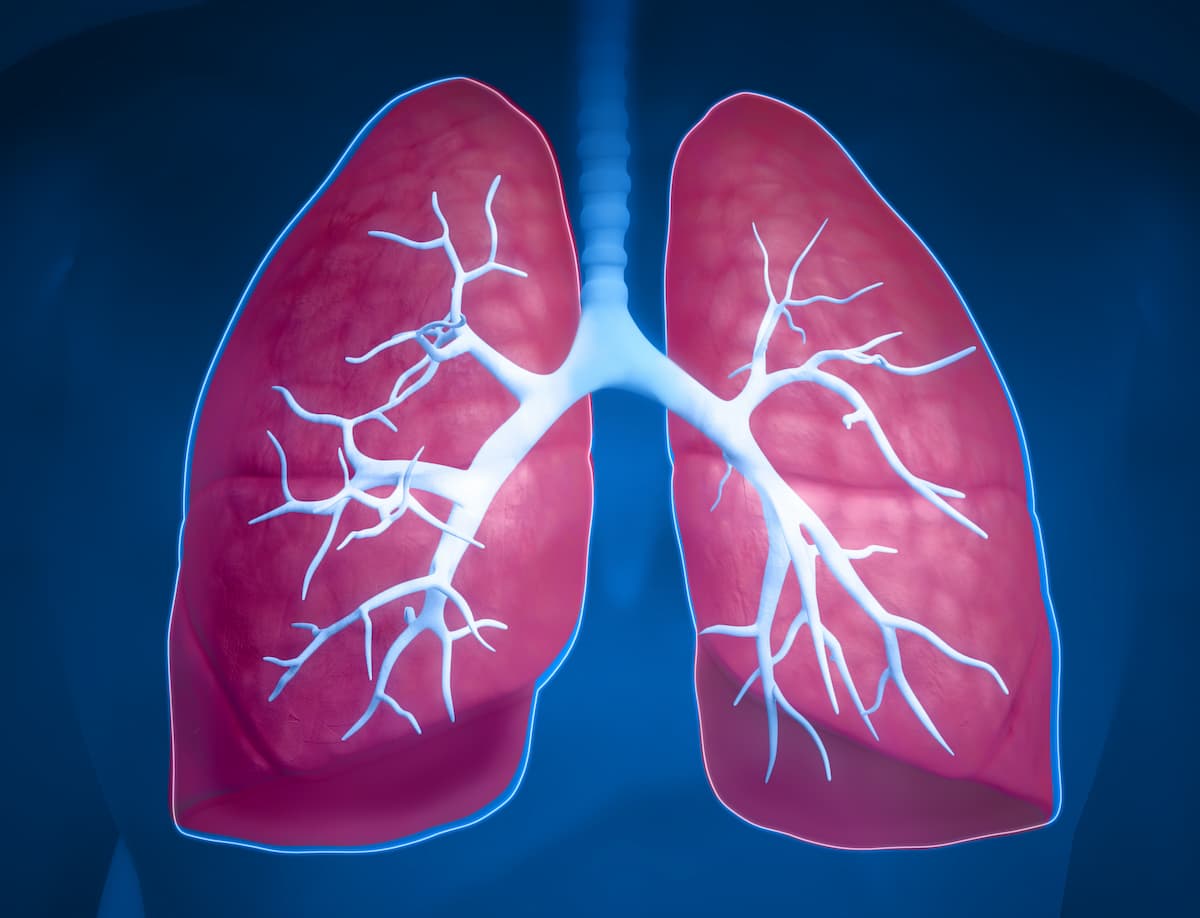EMA Accepts Type II Application for Amivantamab Combo in EGFR+ NSCLC
Data from the phase 3 MARIPOSA study support the Type II application for amivantamab plus lazertinib as a treatment for those with EGFR-mutated non–small cell lung cancer.
The MARIPOSA trial (NCT04487080) included 1074 patients with locally advanced or metastatic NSCLC harboring EGFR exon 19 deletions or L858R substitution mutations who were assigned to receive amivantamab plus lazertinib or osimertinib as frontline therapy.

Developers have submitted a Type II extension of indication application to the European Medicines Agency (EMA) in support of amivantamab-vmjw (Rybrevant) in combination with lazertinib (Leclaza) as a frontline treatment for adult patients with advanced non–small cell lung cancer (NSCLC) harboring EGFR exon 19 deletions or L858R substitution mutations, according to a press release from The Janssen Pharmaceutical Companies of Johnson & Johnson.1
“Today’s submission is a testament to our steadfast dedication to advancing innovative therapies for those who need them most, now and in the future,” Kiran Patel, MD, vice president of Clinical Development, Solid Tumors at Janssen Research & Development, LLC, said in the press release.1 “Pending approval, this novel combination of amivantamab and lazertinib has the potential to transform first-line treatment for patients with EGFR-mutated NSCLC.”
Supporting data for the Type II application came from the phase 3 MARIPOSA study (NCT04487080), which investigators presented at the European Society for Medical Oncology Congress (ESMO) 2023.
Results from the trial indicated that amivantamab plus lazertinib produced a median progression-free survival (PFS) of 23.7 months compared with 16.6 months in patients who received osimertinib (Tagrisso; HR, 0.70; 95% CI, 0.58-0.85; P <.001).2 Additionally, the amivantamab-based combination conferred a favorable overall survival (OS) trend compared with osimertinib (HR, 0.80; 95% CI, 0.61-1.05; P = .11).
Concerning other findings, the median PFS when censoring those who had central nervous system (CNS) progressions was 27.5 months in the amivantamab arm vs 18.5 months in the osimertinib arm (HR, 0.68; 95% CI, 0.56-0.83; P <.001). Data also highlighted a median duration of response (DOR) of 25.8 months vs 16.8 months in each respective arm.
Rash and paronychia were the most common grade 3 or higher treatment-related adverse effects (TRAEs) highlighted in the trial. Additionally, 10% of patients discontinued treatment in the amivantamab arm following TRAEs. Overall, investigators concluded that the safety profile of amivantamab plus lazertinib in the MARIPOSA trial was comparable with prior reports of each individual agent.
“[Amivantamab] is a first-in-class bispecific antibody that targets major oncogenic driver pathways and, when combined with lazertinib, may lead to a more complete and synergistic response against the tumor,” Peter Lebowitz MD, PhD, global therapeutic area head of Oncology at Janssen Research & Development, LLC, said in a press release on these findings.2 “The prolonged duration of [PFS] and favorable trend in [OS] observed in the MARIPOSA study show the potential of [amivantamab] in combination with lazertinib to transform first-line treatment in EGFR-mutated NSCLC.”
The MARIPOSA trial included 1074 patients with locally advanced or metastatic NSCLC harboring EGFR exon 19 deletions or L858R substitution mutations who were assigned to receive amivantamab plus lazertinib or osimertinib as frontline therapy. The trial’s primary end point was PFS as determined via blinded independent central review based on RECIST v1.1 criteria. Secondary end points included OS, overall response rate, DOR, and intracranial PFS.
Developers previously submitted a marketing authorization application to the EMA for amivantamab plus lazertinib in the management of advanced EGFR-mutated NSCLC in December 2023.3 Additionally, the FDA received a supplemental biologics license application for amivantamab/lazertinib for the same patient population in December 2023.4 Both applications were supported by findings from the MARIPOSA trial.
“We are deeply committed to researching and investing in novel targeted therapies to improve the treatment of lung cancer and offer new hope for patients with this condition,” Catherine Taylor, vice president of EMEA Medical Affairs, Therapy Area Strategy, Janssen-Cilag AG, concluded.1
References
- Janssen submits Type II extension of indication application to the European Medicines Agency seeking approval of RYBREVANT® (amivantamab), in combination with lazertinib, for first-line treatment of patients with EGFR-mutated non-small cell lung cancer. News release. The Janssen Pharmaceutical Companies of Johnson & Johnson. February 8, 2024. Accessed February 9, 2024. http://tinyurl.com/mrx7ewws
- Landmark phase 3 MARIPOSA study shows RYBREVANT® (amivantamab-vmjw) plus lazertinib resulted in 30 percent reduction in risk of disease progression or death compared to osimertinib in patients with EGFR-mutated non-small cell lung cancer. News release. The Janssen Pharmaceutical Companies of Johnson & Johnson. October 23, 2023. Accessed February 9, 2024. https://bit.ly/3RM0oSM
- Janssen submits marketing authorisation application to the European Medicines Agency seeking approval of lazertinib, in combination with RYBREVANT® (amivantamab), for the first-line treatment of patients with EGFR-mutated non-small cell lung cancer. News release. The Janssen Pharmaceutical Companies of Johnson & Johnson. December 21, 2023. Accessed February 9, 2024. http://tinyurl.com/2pfxrf8m
- Johnson & Johnson submits supplemental biologics license application and new drug application to U.S. FDA seeking approval of RYBREVANT® (amivantamab-vmjw) plus lazertinib for the treatment of patients with EGFR-mutated non-small cell lung cancer (NSCLC). News release. The Janssen Pharmaceutical Companies of Johnson & Johnson. December 21, 2023. Accessed February 9, 2024. http://tinyurl.com/kjpr73d5